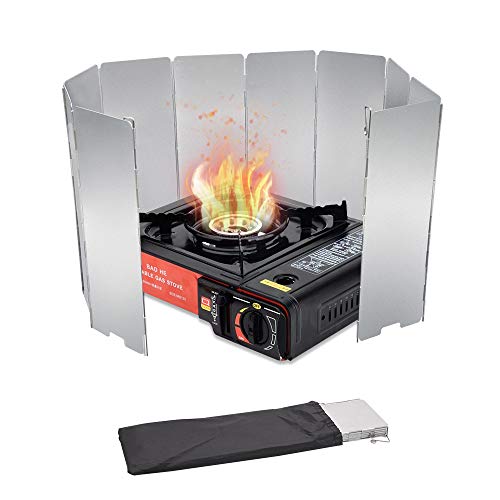
Camping is an adventure-filled activity that takes you amidst nature, but safety cannot be ignored in the wilderness. When you are in the lap of nature, there are a few things to keep in mind that can keep you and your companions safe. In this article we will discuss some important camping safety tips that will make your camping experience safe and enjoyable.
1. Pre-Trip Planning: The First Step to Safety

The first and most important step of camping safety tips is pre-trip planning. If you have planned your trip well, then you have ensured half of your safety. There are a few things to keep in mind in this step:
a. Research Your Destination
It is important to do thorough research about your camping site. Knowing what type of environment you are camping in will make you aware of the possible dangers of our environment. It is important to collect informations about weather condition, local wildlife and terrain. Is there any dangers of rain on the vehicle? Are there dangerous animals in the area? These other items should be included in your planning with camping safety tips.
b. Notify Someone About Your Plans
Wherever you go camping in the wilderness in the nature, share your itinerary with a trusted person. Tell them when you are leaving, where you are staying and when you plan to return. This information can be very helpful in emergency situations.
c. Pack the Essentials
A large part of your safety depends on the tools you carry. In this list you should have a first-aid kit, sufficient food and water supply, navigation tools, weather-appropriate clothing, and emergency shelter. Check every gear before packing, so that everything is functional and usable.
2. Proper Food Storage: Avoiding Unwanted Wildlife Encounter

Close encounters with wildlife can be a thrilling experience, but when these encounters happen with your food supplies, they can become dangerous. Therefore, it is important to understand food storage safety during camping.
a. Use Bear-Proof Containers
If you are camping in an area where bears are common, it is important to use safety with bear-proof containers. These containers are airtight and bear-resistant, keeping your food and scented items safe from wildlife. It is also a good idea to hang these containers on a tree near the campsite, so that wildlife can easily access them.
b. Dispose of Waste Properly
Properly disposing of food waste and trash is an important aspect of camping safety tips. This waste can attract wildlife, which can be dangerous to your camp and you. Therefore, pack your waste and dispose of it in a proper disposal area. Compostable items should also be avoided around the campsite.
3. Fire Camping Safety Tips: Managing Campfires Responsibly

Campfire is an essential part of camping, but handling its responsibly is important for your environment’s safety. Also read more about camping safety tips.
a. Check Fire Regulations
Inform yourself in advance about vehicle fire regulation in the area you are camping. Where does such a thing happen, where fire is banned or fire is allowed only in designated fire pits. You must follow these regulations.
b. Build a Safe Fire Pit
If you are allowed to have a fire, makes a safe fire pit. Make sure the fire pit has dry, non-flammable ground and clear all dry leaves, twigs and grass around it. Keep the fire to a manageable and never leave it unattended.
c. Extinguish the Fire Completely
If you have used fire, ensure that you have extinguished the fire completely. For this you can pour water on the fire pit and then stir the pot to see that there are no embers or flames. Fire has never been controlled like this.
4. First-Aid Knowledge: Be Prepared for Emergencies

It is important to have basic first aid knowledge to handle any emergency situation while camping. This will give safety and confidence to you and your family group.
a. Learn Basic First-Aid
Learning basic first-aid skills is an important step before going to camping. These skills include how to apply bandages, how to treat cuts and burns and how to perform CPR. If someone in your group has allergies, it is important to understand how to use the epi pen.
b. Carry a Well-Stocked First-Aid Kit
It is important to carry a well-stocked first-aid kit with you. This kit should contain bandages, antiseptic wipes, pain relievers, tweezers and emergency medications. This kit will help you in giving first response in emergency situations.
c. Stay Calm in an Emergency
It is very important to remain calm and composed in emergency situations. Panic can make the situation worse. You should assess the situation and give the best possible response. If the situation seems out of your control, contact the nearest help.
5. Water Safety: Stay Hydrated and Safe

Water safety is also an important aspect of camping, especially if you are camping near natural water bodies.
a. Purify Water Before Drinking
Natural water sources, such as rivers, lakes or streams are not directly drinkable. They may contains bacteria, parasites or harmful chemicals. Therefore you should use portable water filters, purifying tablets or boiling methods to make water safe.
b. Stay Safe Around Water Bodies
If you are camping near water bodies for swimming or fishing strictly follow water safety rules. Strong water waves, deep water and slippery rocks can be dangerous. Never go swimming alone and always use safety gear, such as a life jacket.
6. Navigation: Don’t Get Lost
Getting lost in the wilderness can be a real danger.Therefore It is important to use navigation tools correctly and learn basic navigation skills.
a. Use a Map and Compass
Even in today’s age of GPS and smartphones, it is important to carry a traditional map and compass. GPS signals are not always reliable, but you can find your location with a map and compass.
b. Mark Your Trail
If you are hiking, remember to mark your trail. For this you can use small markers, flags or naturally available elements. This will help you return safely to your campsite.
c. Know When to Turn Back
If you feel that you have strayed from your path, then decide at that moment to turn back. It is better to be safe than take risk. If you can not find your way back, please contact emergency services and numbers.
7. Weather Awareness: Prepare for the Unexpected
Weather in the Wilderness of nature can be unpredictable, so you should be prepared for it.
a. Check Weather Forecasts
Always check the weather forecasts before your trip. If severe weather conditions are expected, postponing your trip is a better option.
b. Pack Weather Appropriate Gear
You should be prepared for all types of weather while camping. Don’t forget to carry waterproof clothing, extra layers and sun protection gears with you.

















